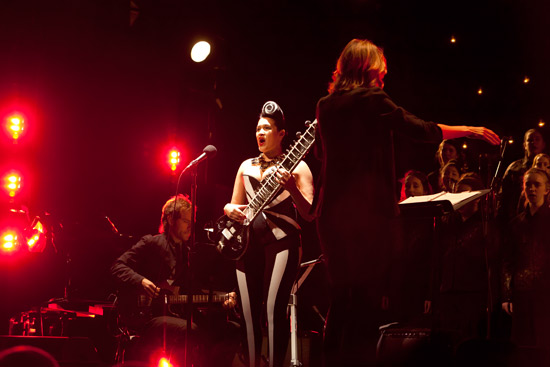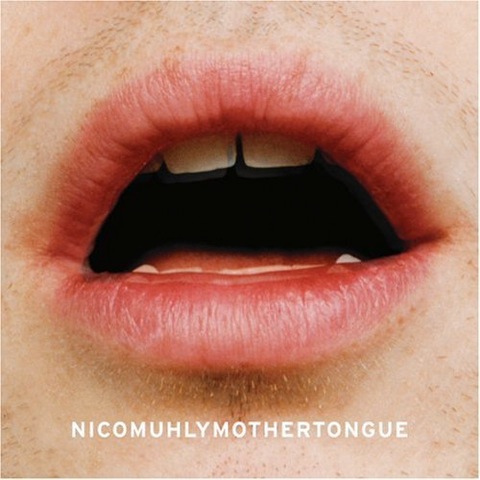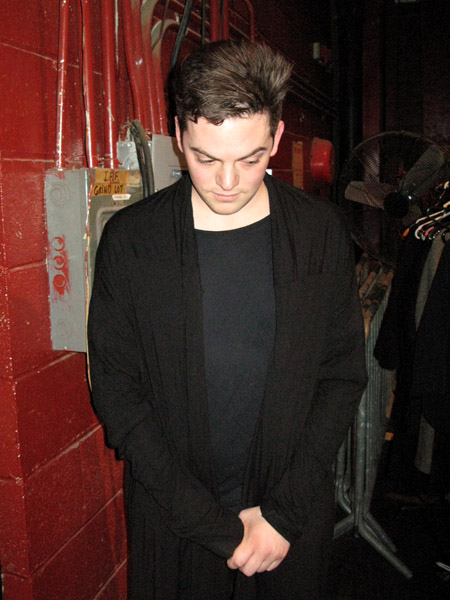When I saw “The Reader” for the first time, I gave in to it completely, and undeniably, I was in tears. Little did I know that the subtle orchestra, which provoked my emotions, was music composed by one of America’s youngest classical composers, Nico Muhly. He also lives right here in New York City. Although his work is based on classical traditions, his renditions and variations in rhythms are highly contemporary, which makes it compatible with a broad genre of music. Nico has worked for Phillip Glass from 1999 to 2008. His collaborators include Bjork, Jónsi of Sigur Rós, Grizzly Bear, and Anthony and the Johnsons. Besides “The Reader” (2008), he also scored for the film “Joshua” (2007). I recently saw his latest piece “Tell the Way” at St. Ann’s Warehouse, which is “loosely based on medieval and colonial English travel narratives, the work draws from American folk sources, prayers for the Royal Navy, early colonial diaries, Mandeville, Herodotus and Marco Polo”. Commissioned by Brooklyn Youth Chorus, the ensemble included an eclectic mix of talents: a 45-member choir, guitarist Bryce Dessner, British singer Bishi, the unexpected appearance of a sitar, Nico’s sense of humor, and of course, him playing the piano throughout. His full length albums include Speaks Volumes (2007) and Mothertongue (2008), both released under the artist-run label Bedroom Community. In the midst of writing two operas, I was fortunate to get a brief interview with the artist.


Photos: Richard Termine
Helen Homan Wu: How did “Tell The Way” come about?
Nico Muhly: Tell the Way is the fourth piece I’ve written for the BYC. I have enjoyed working with them in the past, but we’ve always just done single, sort of one-off pieces. As an hour long piece, Tell the Way was an opportunity to really command their entire musicianship. Selfish on my part, but I think ultimately rewarding for them.
HW: What is it about children’s choir that keeps appearing in your work?
NM: I was a boy chorister, so the sound of children’s voices is very important to the emotional makeup of my own musicianship.
HW: You studied English Literature at Columbia, how does that affect your music compositions?
NM: I always begin a piece by thinking about text, rather than notes. Text, or language, or a little turn of phrase for me is a great starting-point. The notes come later.

HW: Do you go by any general rules when you compose?
NM: No, but I go by about sixty specifc ones I invent for each piece. Each piece has its own little talmudic obsessions. Tell the Way, for instance, always starts like a Journey song!
HW: You worked with Philip Glass, one of the most prolific and influential composers of our time. You’ve probably gained plenty of insights from that experience, can you share some with our readers?
NM: He is one of the few composers I know who provides other people with health care. It’s amazing. His operation is as much a social one as a musical one. He is also very much not allowed to take a day off. He is as obliged to his employees as they are to him. It’s a beautiful system.
HW: What was it like working with Bjork?
NM: She is amazing. She has such a top-down view of a project, despite the number of collaborators. She’s somebody who can have her hands in the dirt of a project but also soar above and get a bird’s eye view. A total inspiration.
HW: You started the music label Bedroom Communities with Valgeir Sigurðsson, and Ben Frost. How do you see the role of a music label today?
NM: I think that labels are important because they act as a curatorial gesture that connects musicians. So, for instance, people who like Ben’s music might not otherwise have access to mine were it not for the structure of the label. Similarly, Valgeir, Ben and I all love working with each other, and the label provides a structure for that to happen more.
HW: What are you working on now?
NM: I’m writing two operas! Isn’t that enough!?!?
WEBSITE
nicomuhly.com


 RSS
RSS
